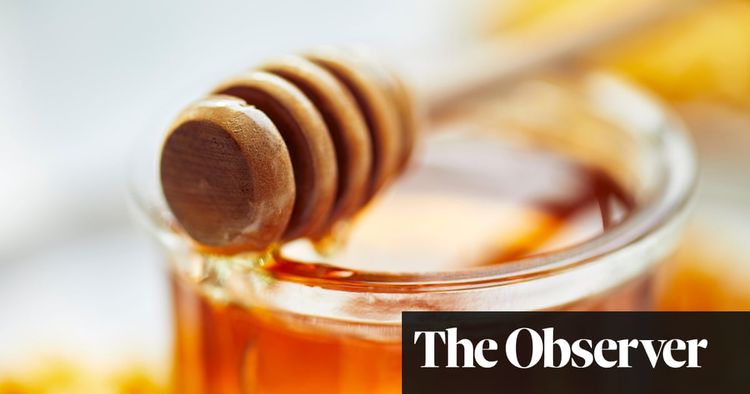The authenticity of all UK honey tested during an EU fraud investigation is found to be failed.

A recent investigation carried out by the European Commission has revealed that almost half of the honey products tested were believed to be fake due to being mixed with low-cost sugar syrup. This confirms that honey adulteration is currently a major problem. Shockingly, all of the honey samples from the UK tested negative for quality. It is likely that the honey originated from abroad and was blended or packaged in the UK.
It's not the initial time examinations have proposed that consumers in the UK could be subject to deception when buying honey. Nonetheless, supermarkets claim that they conduct honey testing on a regular basis and check supply chains as part of their auditing process.
Over the weekend, the government announced that they are currently looking into the findings. However, they have stated that food safety is not in danger. According to officials, honey's validity cannot be determined by one single test and thus, further investigations will take place to obtain more insight.
The European Union's (EU) department in charge of deterring fraud (Olaf) has stated that these methods of operation cheat customers and endanger legitimate producers, as they must compete against those who reduce prices by using unlawful and inferior ingredients.
The European Commission's branch in charge of health and food safety took charge of the initiative, with the participation of 18 European Union countries that are members of the food fraud network (excluding the UK due to Brexit). The Joint Research Centre (JRC), the Commission's center for science and expertise, as well as Olaf, were also involved in providing support.
Researchers examined a total of 320 specimens and determined that 147 of them (which comes out to about 46 percent) were questionable since "some element of foreign sugar sources were identified."
Last week's report from the JCR stated that honey brought into the EU from the UK has a suspicion rate of 100%. This may be due to honey that was initially produced in other countries, then modified in the UK before being re-exported to the EU.
During the year of 2022, the United Kingdom obtained over 38,000 metric tons of honey from China, their main source for the product. There is a documented risk of sugar syrup contamination in the Chinese honey. The current regulations don't mandate the country of origin to be labeled on blended honey, which may consist of honey from multiple countries. As a result, shoppers might not realize that they are buying honey with origins from China at lower prices.
Lynne Ingram, an expert beekeeper at Wesley Cottage Bees in Somerset, is part of a collective of beekeepers advocating for improved consumer awareness. She explained that if you come across honey that costs as low as 75p per jar, it's likely to be fraudulent. It's not viable for genuine honey to be produced and sold at such affordable prices.
This alarming findings are just a glimpse, but they showed that around 50% of the honey samples were blended with other substances and this issue is increasing. There isn't any appropriate supervision or assessment currently and individuals can easily escape punishment for it.
Ingram recommended that buyers opt for honey jars that display the nation where it came from on the packaging, and preferably purchase it from traditional beekeepers in the area.
Several experiments on honey sold in UK supermarkets have suggested that some of the samples may have been tampered with, possibly by adding sugar. A prominent German laboratory conducted tests in 2020 and found that eight out of nine samples did not comply with the standard. However, some retailers and members of the honey industry have challenged the findings, and government officials have stated that more advanced testing methods are necessary for conclusive results.
Arturo Carrillo, who leads the Honey Authenticity Network and is based in Mexico, has revealed that honey sold in UK supermarkets is often not genuine. Through testing, his team has found evidence of honey being mixed with other substances to make it cheaper to produce. This honey is often imported from China at a low cost. Despite these findings, the UK government has been slow to acknowledge and tackle this serious issue.
If this research fails to prompt a comprehensive and thorough inquiry in the United Kingdom, comparable to that in the European Union, then it suggests that the UK is either entirely inept or actively involved.
The government does not agree with allegations that honey imports are being tampered with on a large scale. Earlier, it had mentioned that there is not enough proof so far to suggest any deceitful activity and the law implementation is suitable for the situation.
According to a representative from the Department for Environment, Food and Rural Affairs, it is vital to safeguard against all kinds of food fraud, especially when it comes to tampering with honey. Adulterated honey is not tolerated, as it damages the trust that consumers have in their products and puts legitimate businesses at a disadvantage.
We collaborate extensively with authorities responsible for enforcing regulations to make sure that honey being sold in the United Kingdom is not compromised by any form of adulteration. Our standards are very high, and we are committed to preserving them. Doing so helps maintain fairness across the market for honey producers.
Authorities stated that they will scrutinize the outcome of the recent research to determine if it suggests any violation of regulations.
According to Devina Sankhla, who works as a food policy adviser for the British Retail Consortium, the members of their organization collaborate with suppliers to guarantee that the honey being sold is genuine. They maintain this authenticity by performing frequent inspections to ensure that there are no discrepancies. To further improve the identification of honey that has been tampered with, retailers encourage the advancement and standardization of various techniques.





















































